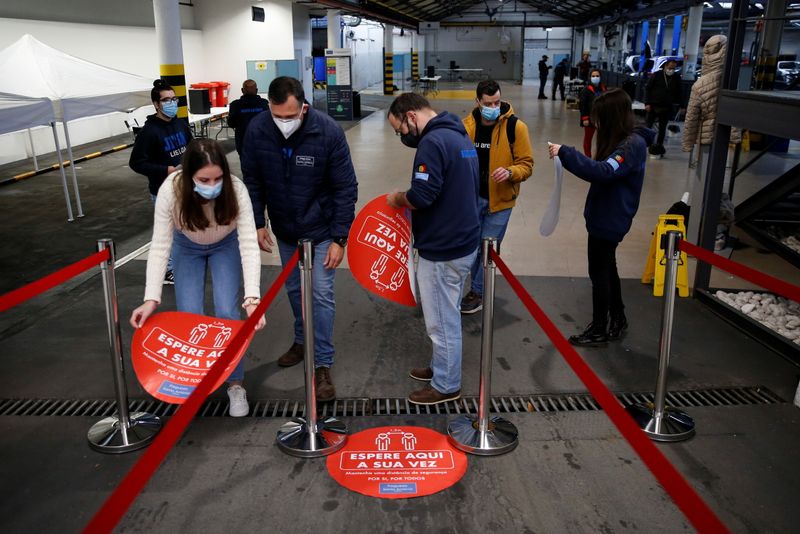By Victoria Waldersee
LISBON (Reuters) - Portuguese voters - largely confined to their homes due to a strict COVID-19 lockdown - will pick a new president on Sunday, but many fear going to the polls could worsen a surge in coronavirus cases and low turnout is expected.
The country of 10 million people, which fared better than others in the first wave of the pandemic, now has the world's highest seven-day rolling average of new cases and deaths per capita.
Authorities reported a record daily toll of 274 deaths and more than 15,300 new cases on Saturday.
"It wouldn't have been a problem to wait another month. Exceptional times call for exceptional measures," said Lisbon resident Miguel Goncalves, 55.
Almost two-thirds of voters think the election should be postponed, a poll by research institute ISC/ISCTE showed last week.
Delaying the ballot would have required changing the country's constitution - something officials said was not possible at such short notice, but there has been widespread criticism of the decision to press ahead with the vote for the largely ceremonial president.
"They should have spread voting over more days," political scientist Joao Cancela of IPRE-NOVA University said. "It's a mistake to think the only options were to delay or keep as is."
Voting is the only reason people are permitted to leave home for anything other than essential work or trips under the current nationwide lockdown rules.
Pollsters expect record-high abstentions, even as voluntary teams clad in protective gear collected ballots at the doorstep of some 13,000 quarantined voters, and about 250,000 people registered for early voting to avoid crowds.
"We're now facing a double-edged risk - high abstentions, and the fact that those who do turn out will be outside their homes," opposition leader Rui Rio said.
Opinion polls show that the incumbent, President Marcelo Rebelo de Sousa of the centre-right Social Democratic Party, is likely to easily win re-election, with left-wing candidate Ana Gomes forecast in second at 13.5-14.5% and the leader of far-right party Chega Andre Ventura close behind at 10-12.5%.

Despite their mainly ceremonial role, presidents can veto certain laws and decree states of emergency.